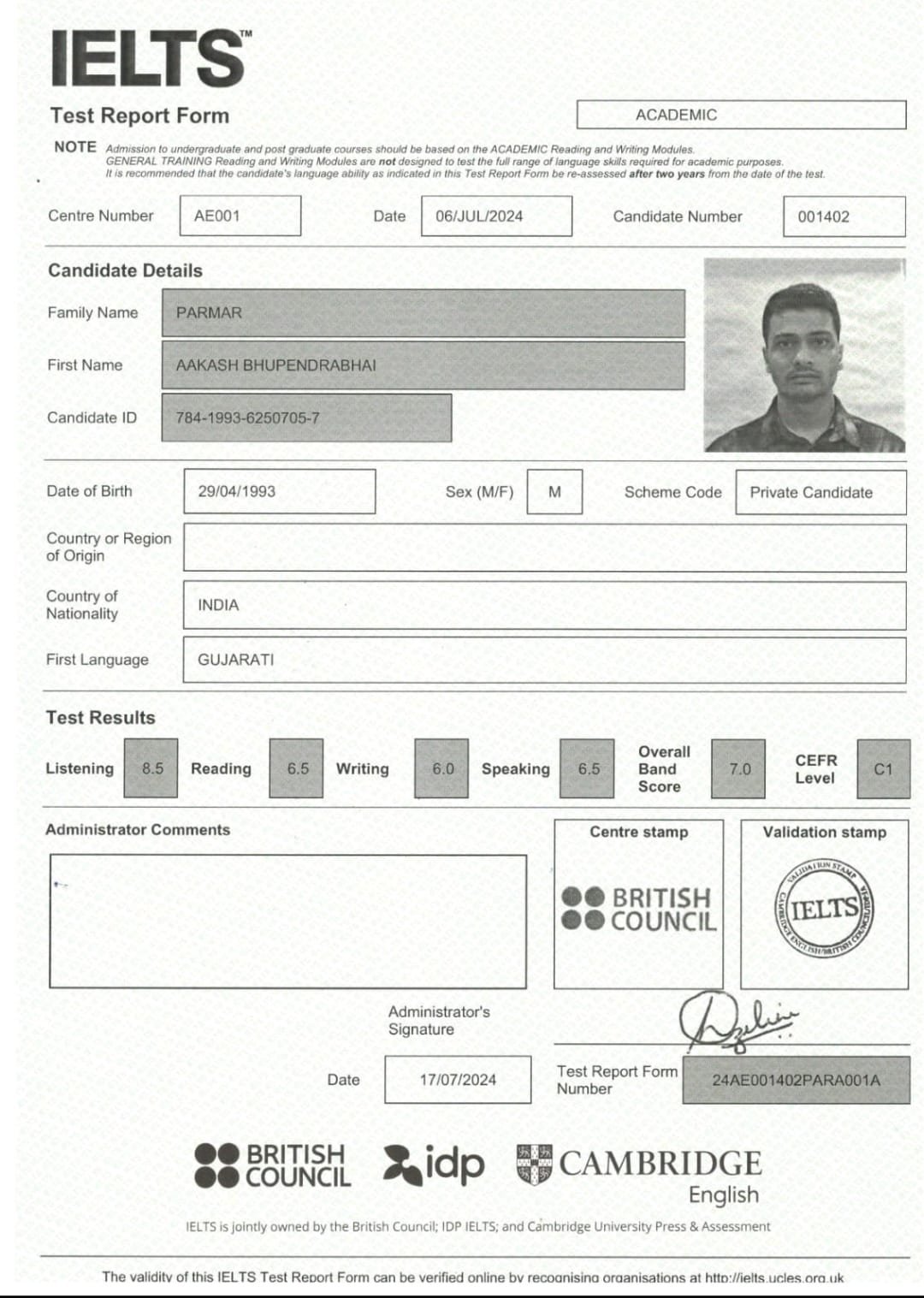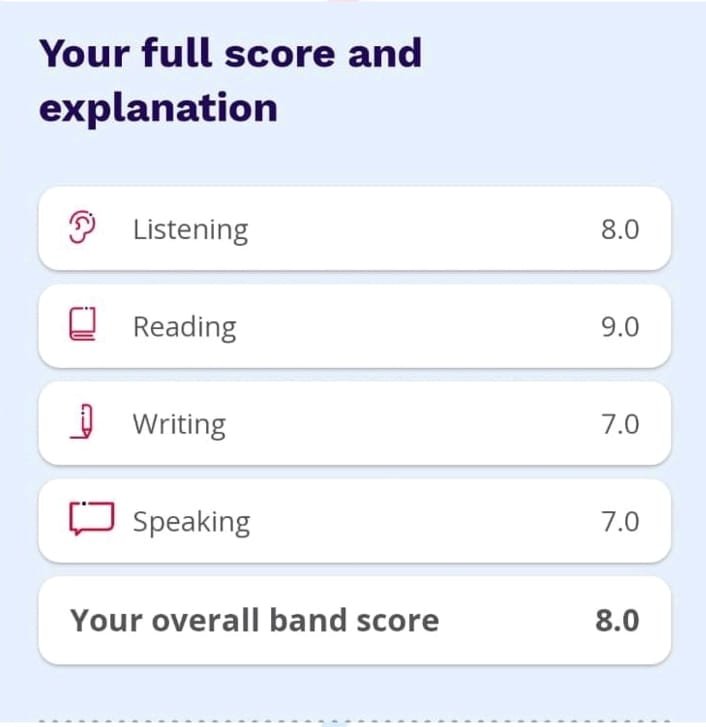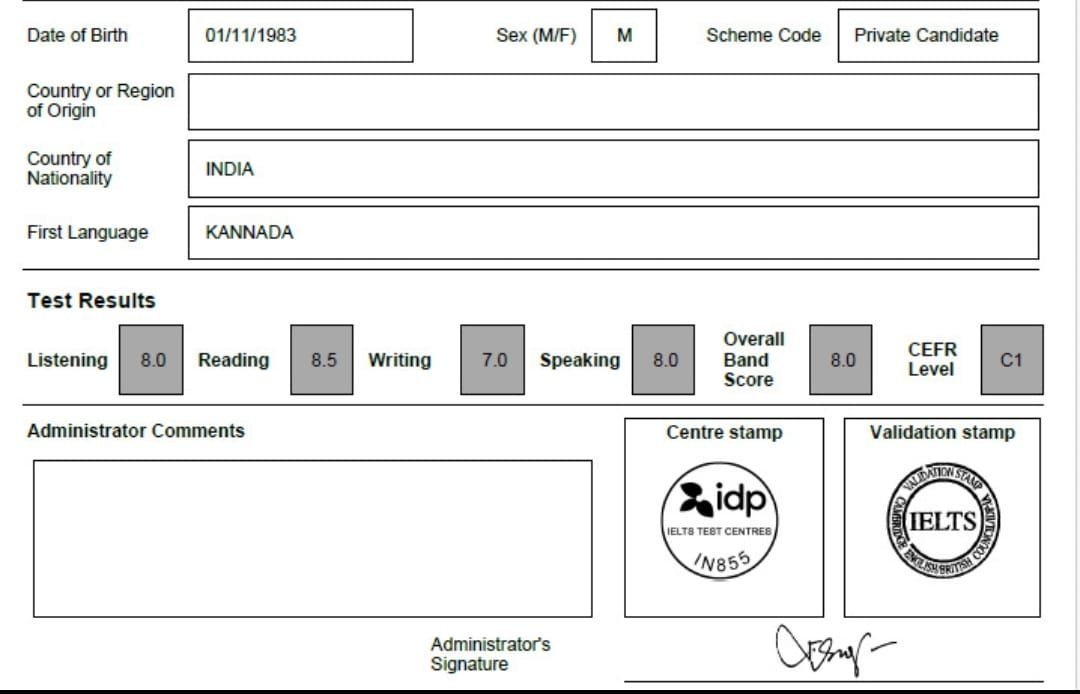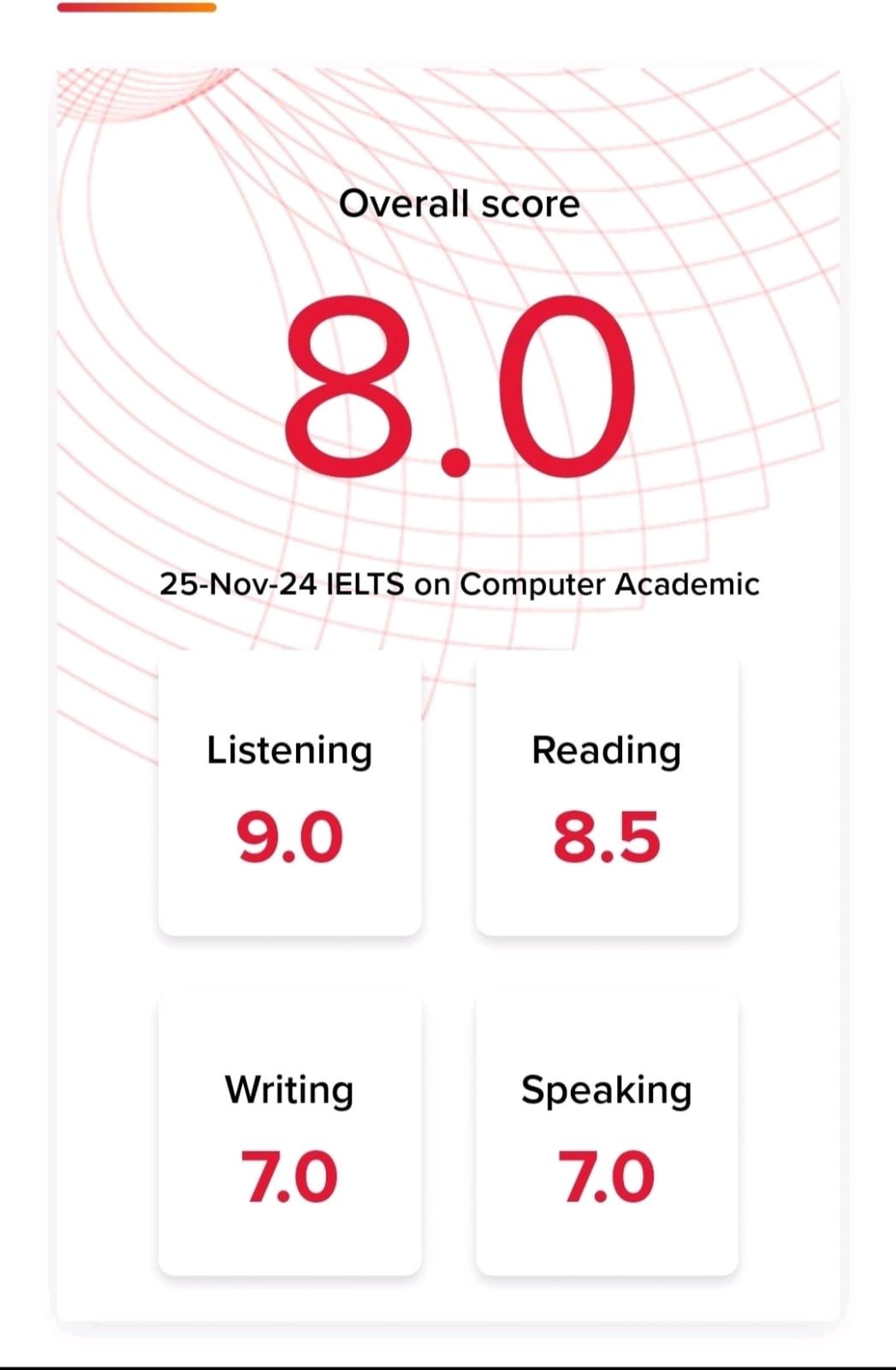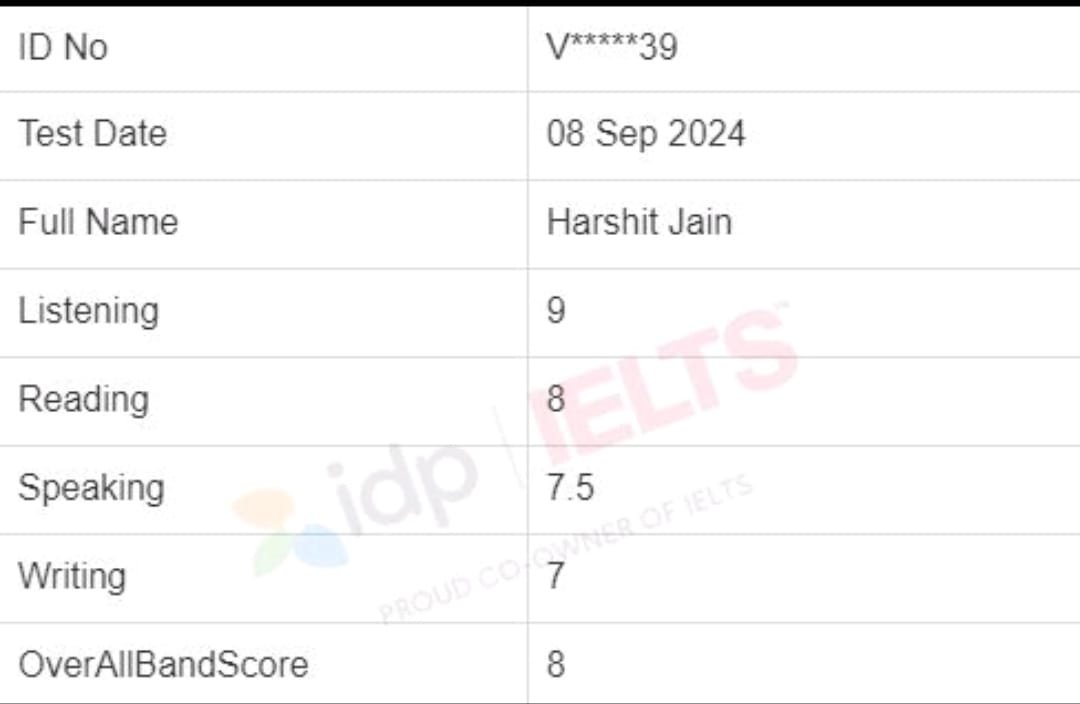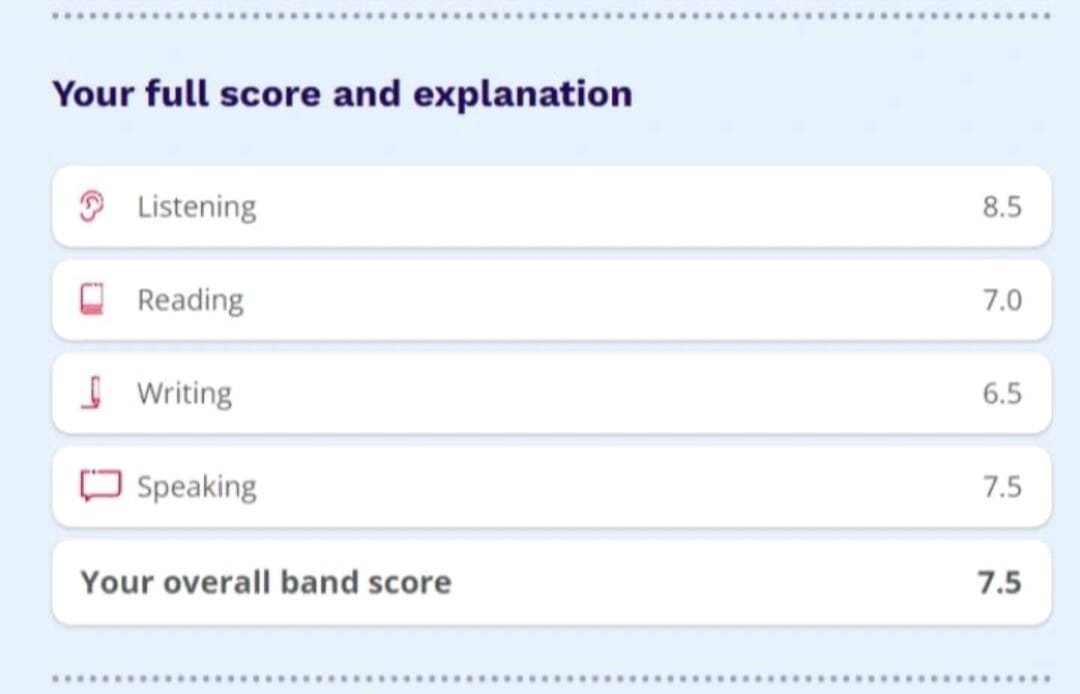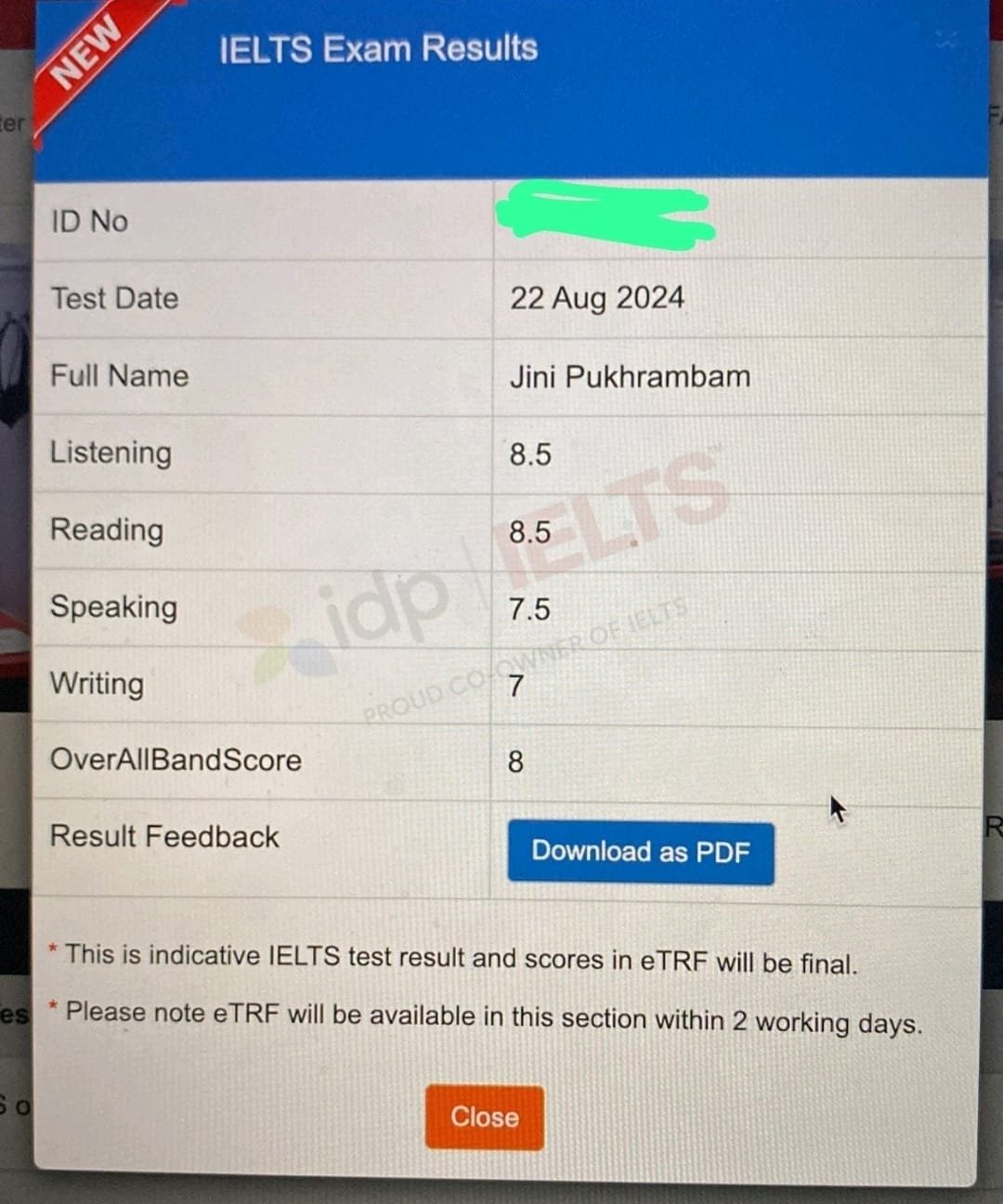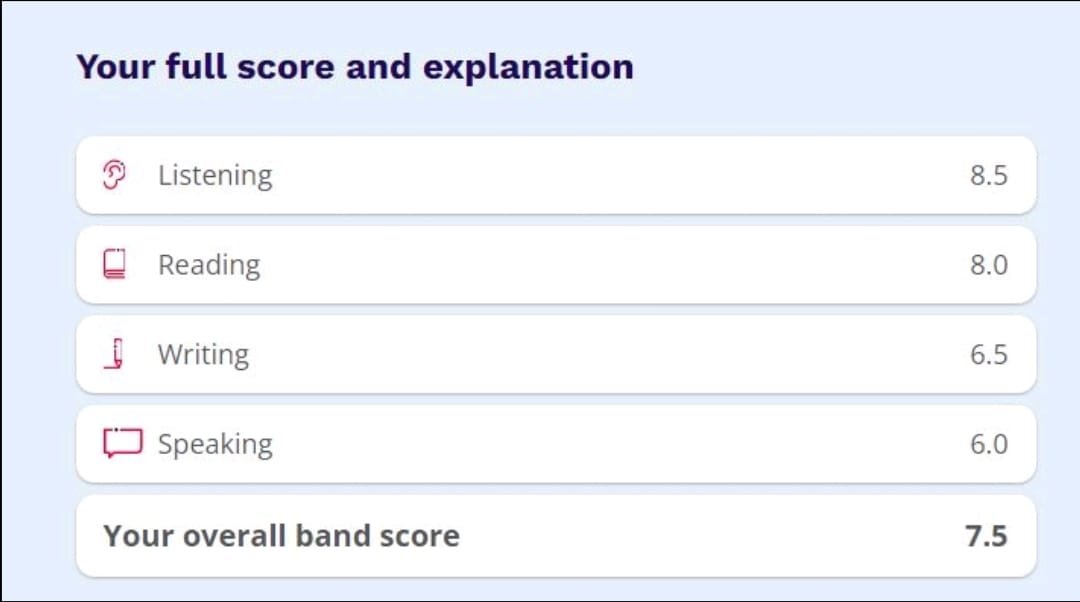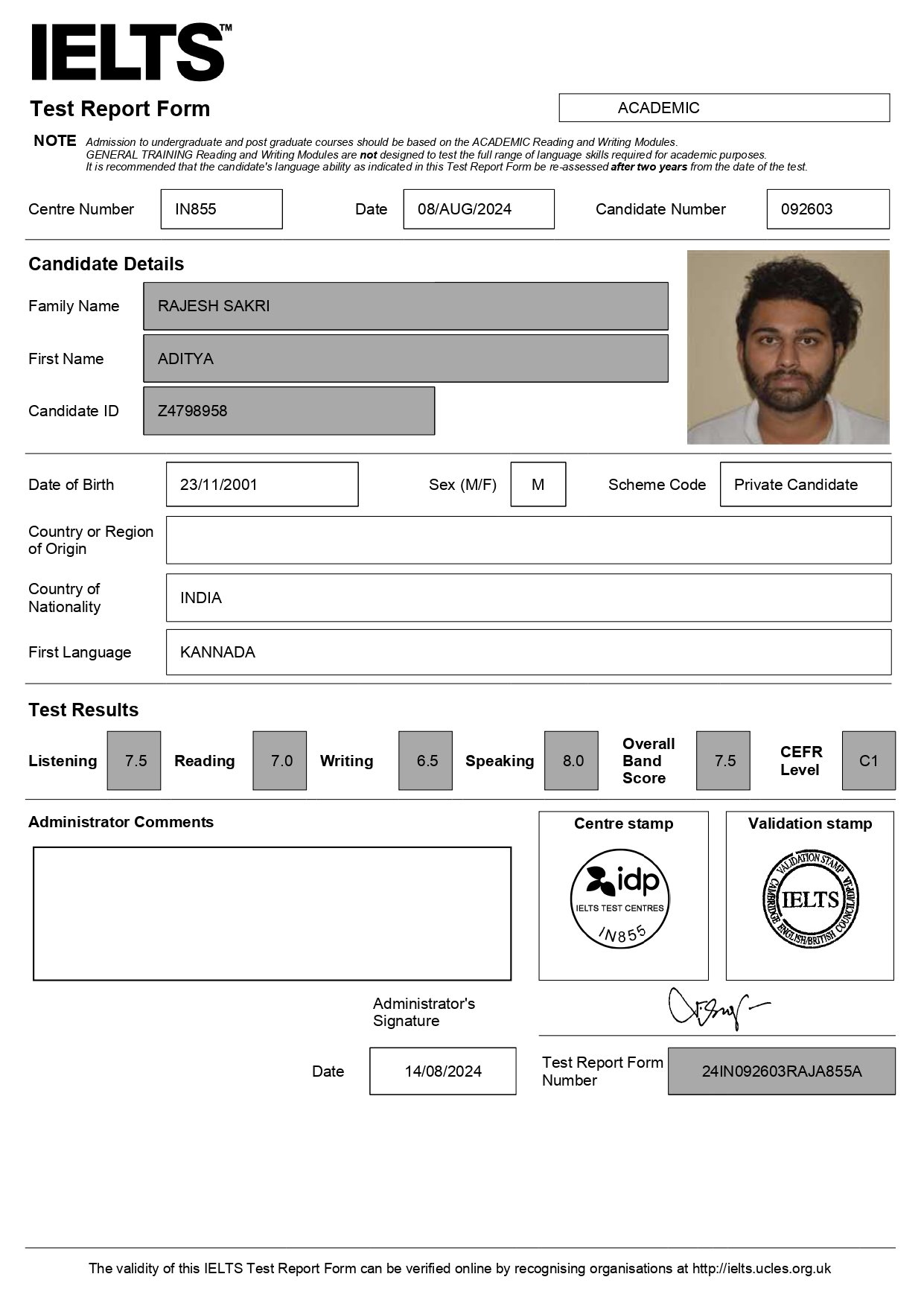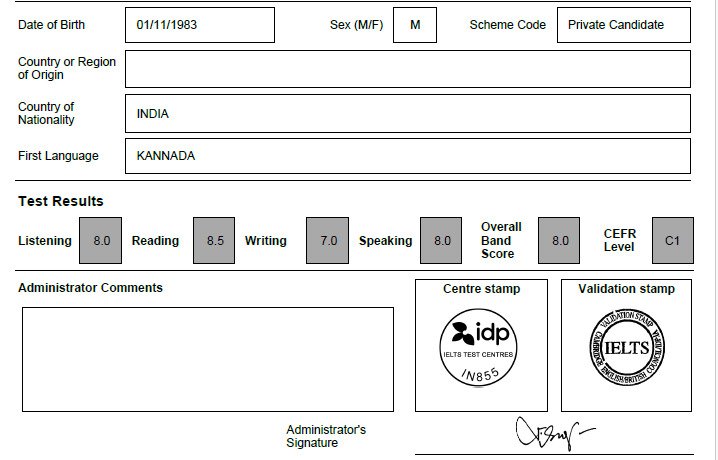
As an IELTS coach with more than 14 years of experience, I often get asked, “Can I prepare for the IELTS exam without coaching?” The answer is yes! You can score the desired IELTS band from the comfort of your home with the correct approach, motivation, and resources. In this guide, I’m going to take you through the most important facts you need to know about preparing for the IELTS independently.
Understanding the IELTS Exam
Before I dive into preparation strategies, let’s talk about what IELTS is all about. IELTS (International English Language Testing System) is a non-native speaker English proficiency test. It tests your abilities in four aspects: Reading, Writing, Listening, and speaking. The test is essential if you plan to study, work, or migrate to an English-speaking country.
Because high IELTS scores are required by most of the universities and visa/immigration matters. The good news? You don’t have to have someone coach you formally. You can study for the IELTS exam online, on your own, with self-discipline, strategic planning, and effective techniques.
How to Prepare for IELTS at Home Without Coaching?
To prepare effectively, here are some key tips and techniques to follow.
Join my free IELTS Master classes.
General Tips
Familiarize yourself with the test: I always say you should start with the basics. Go to the official IELTS website or download the IELTS student’s guide. Familiarize yourself with test sections, question types, and scoring. A clear comprehension of the marking criteria and band descriptors is essential for holistically enhancing your writing performance.
Regular practice: Regular practice can lead to perfection! Download IELTS sample question papers, time yourself for two hours and forty-five minutes (actual duration of the test), and take a full test. Practice until you can solve them correctly within the time limit.
Improve Overall English Proficiency: Reading books, articles, and newspapers will improve comprehension. Are you going to listen to English podcasts, news, and audiobooks in order to get help for pronunciation and to recognize the accent? Practice English again and again. Speaking English Conversation with Native Friends or Online Communities
Time Management: The IELTS exam is time-bound, and it is essential to practice under set time limits for each section. During practice, also make sure that you finish tasks within given deadlines.
Study in a Distraction-Free Study Environment: Find a place to study that is quiet and not distracted. In order to concentrate and practice well, keep your phone away. Be sure to divide your prep into study slots, allowing yourself short breaks in between to avoid burning out.
Here are some tips to prepare for the IELTS reading.
Do Reading With Watch: Time Yourself With Stopwatch And Read With That Time. Get some practice by reading the same thing again, trying to do it faster, but not so fast that you lose the ability to comprehend what you’re reading.
Skimming and scanning: Skim text passages for general understanding and scan for specifics to find answers through key details. Practicing these techniques ahead of time will surely save you precious time during the test.
Improve Your Vocabulary: IELTS reading passages usually have heavy vocabulary. Make a habit of learning new vocabulary and their meanings. With a good vocabulary, you will find it easier to comprehend challenging passages.
Learn Text Mechanics: Notice the way different types of text are structured. Train on IELTS reading passages and find out more about academic styles.
Tips to Prepare for Writing the IELTS Exam
Write Down What You Are Asked: Writing Task 1 has a minimum word count of 150 words, and Task 2 has a minimum of 250 words. Do read the fine print, though, and do not get penalized for exceeding the word count.
Helpful resource: https://yourlocalieltscoach.com/essay-samples/
Think about Common Topics: Topics such as education, environment, technology, and health are common to see in IELTS writing tasks. To formulate compelling arguments, you must know a little bit about these areas.
Use a Variety of Sentence Structures: Include simple, compound, and complex sentences to demonstrate your grammatical proficiency. This will help you score in a higher band.
Helpful resource: https://yourlocalieltscoach.com/ielts-writing-task-1-diagrams-processes-maps-combination-of-charts/
Grammar Mistakes: Practice writing essays and take feedback from anyone who can point out the grammar mistakes. Mind the punctuation, tenses, and connectors.
Make Better Decisions/Have Better Reasoning: Read debates and analyze them. You’ll be able to write logical and well-supported essays.
You should practice model answers or sample IELTS essays to get an idea of how to structure a correct IELTS response and organize your content.
Tips for preparing for IELTS Listening
Stay completely focused: As the listening test only plays once, train yourself to remain focused throughout. You will develop this over time by practicing.
Helpful resource: https://yourlocalieltscoach.com/ielts-vocabulary-by-kk-ielts-coach-ylic/
Get Yourself Acquainted with Various Accents: IELTS listening audios consist of British, American, Australian, and other types of English accents. Don’t worry, once you regularly listen to various accents in podcasts or news channels, you will become accustomed to them!
Hear vs. Listen: Don’t just hear, but listen to understand what is being said. It enhances your ability to understand meaning rapidly.
Audio Recording Summary: Listen to a podcast or conversation and summarize in your own words. This will enhance your understanding and retention.
IELTS Speaking Preparation Tips
Discuss a Variety of Topics: Have discussions about different topics with your friends or online language partners. This will prepare you to think on your feet during the test.
Helpful resource: https://yourlocalieltscoach.com/e-books/
Polish Your Pronunciation: List a few words you find difficult to pronounce and work them out correctly.
So you have to practice speaking in 3 to 4 minutes on a particular fictional topic of your own. Get cue cards at random and practice the timer while speaking.
Speak Naturally: Don’t push for too fast or slow, just maintain your comfortable and natural pace
Best Resources for IELTS Preparation at Home
Some amazing resources that I recommend to my students are:
- Quizlet: Good flashcards for learning vocabulary.
- Forvo: A helpful tool for improving pronunciation.
- Lang-8: A web service in which native speakers of your target language correct your written English.
- WordReference: A reliable online dictionary for expanding your vocabulary.
- IELTS Books: Some of the best books for self-study include The Official Cambridge Guide to IELTS, Cambridge Grammar for IELTS, Cambridge Vocabulary for IELTS, and Barron’s IELTS Superpack.
Conclusion
The best news of all is that it is entirely possible to prepare for IELTS at home—if you know how! If you follow these tips and make use of the resources, you should be able to reach your target band score results! But if you need help finding your way, I’m always around! With my IELTS coaching, you would get structured training with personal feedback to bring out the best with confidence.
FAQ
How do beginners prepare for IELTS at home?
At the early learning stage, know the test format, question types, and band descriptors. Establish your daily target in addition to practicing regularly to hone your skill!
Is it possible to get a Band 8 in IELTS without coaching?
Yes, it’s possible! If you are a disciplined person and are ready to put in the work, you can get a high band score yourself through your self-study and practice, along with receiving feedback on your work.
What is the most difficult section in IELTS?
The writing module is the hardest for multiple students as its assessment is very stringent.
Is it possible to pass IELTS on the first try?
As intimidating as it sounds, it is by all means doable, given some planning, practice, and feedback.
Can I prepare for IELTS by myself?
Yes, you can indeed prepare for IELTS by yourself. Absolutely! It is definitely possible to crack the IELTS test without any coaching if you have an appropriate study plan, some intelligent strategies, and consistent daily practice.
Please reach out for more help if you need. I’m always here to help! Click here.
